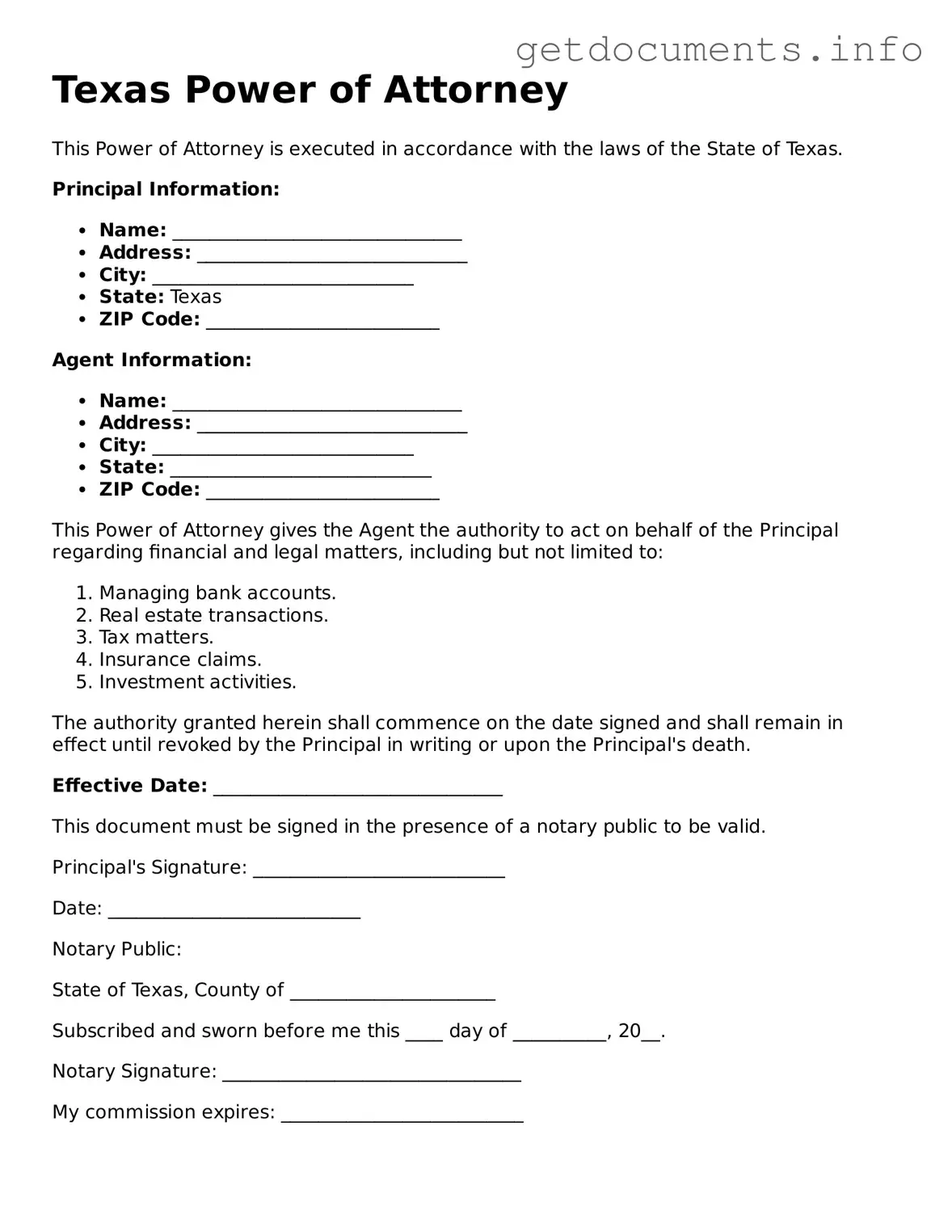Free Power of Attorney Template for Texas
The Texas Power of Attorney form is a legal document that allows an individual to appoint someone else to make decisions on their behalf. This form can cover a wide range of financial and medical matters, ensuring that your wishes are honored even when you are unable to communicate them. Take control of your future by filling out the form below.
Access Power of Attorney Editor

Free Power of Attorney Template for Texas
Access Power of Attorney Editor
Got places to be? Complete the form fast
Fill out Power of Attorney online and avoid printing or scanning.
Access Power of Attorney Editor
or
⇩ PDF File
